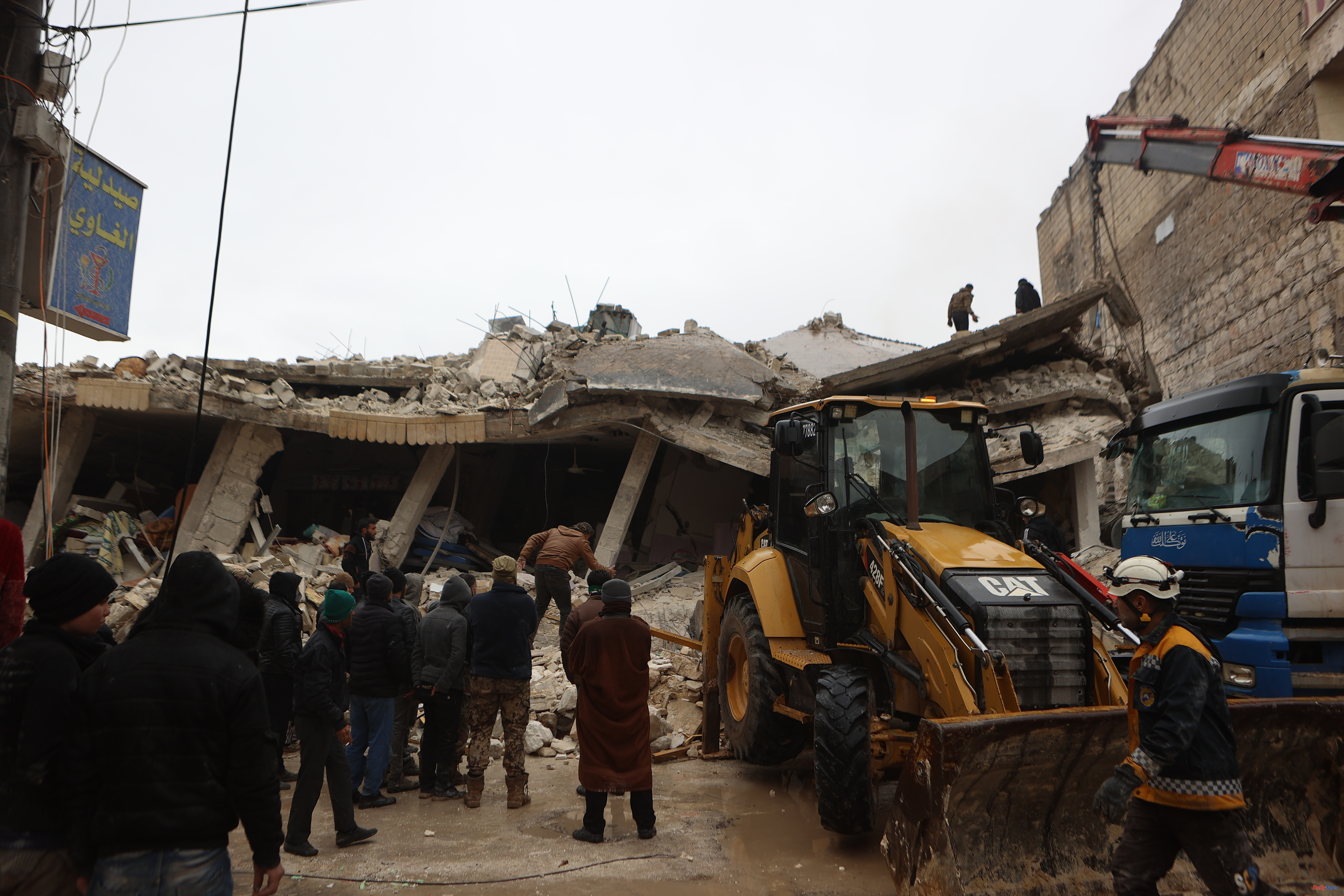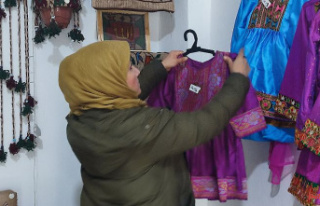The situation in northwestern Syria continues to be dire a week after the earthquakes that have shaken this country and neighboring Turkey. The aftershocks of the earthquakes last Monday continued over the weekend, forcing the population to abandon the buildings that were still standing, the OCHA (Office for the Coordination of Humanitarian Affairs of the UN) reported yesterday. To date, the sad balance of deaths in Syrian territory amounts to more than 4,300, while there are more than 7,600 wounded (the global death toll exceeds 35,000 in both countries). Fear coexists with death and destruction from earthquakes and the aftermath of the civil war.
In this zone, divided between areas controlled by rival sides in the Syrian conflict, 4.1 million people depend on humanitarian assistance, and whose situation was already very precarious before the catastrophe. Of these, 1.8 million live in camps or settlements for refugees and internally displaced persons, with restricted access to water, electricity, heat or health care, if not completely without them.
In this 'matryoshka' of tragedies that is the north of the Arab country, the situation of Palestinian refugees is especially alarming. The area is home to some 62,000 Palestine refugees, who live in four camps: Latakia, Neirab, Ein el Tal and Hama. According to the UN Agency for Palestinian Refugees, UNRWA, 90% of the families living in these enclaves need help after the earthquakes. Many of them are refugees for the umpteenth time, that is, they have had to leave their settlements due to the war.
To date, UNRWA has confirmed the deaths of 18 Palestinians as a result of the earthquakes: eight in Latakia, seven in Jableh and three in Neirab. In the latter enclave, near Aleppo, two girls aged 9 and 11 -students at the UN agency school- are among the fatalities. In Latakia, four members of the same family (the parents and their two children, a boy and a girl), died under the rubble. Two other people are missing.
"To the extreme situation of those who have lost their loved ones or those who were injured, fear is added as a sequel. Fear that the buildings in which we live could collapse," Amanya Michael Ebye, director of EL MUNDO, tells UNRWA in Syria. Telephone lines and communication networks have been damaged after the earthquakes and it is difficult to establish a connection for our telephone conversation.
"It seems that many factors have come together to make the situation even worse. It is very difficult to provide assistance because as soon as the earthquakes occurred, the temperatures dropped so much that we had snow the next morning," describes the person in charge.
The communities in northwestern Syria were already starting from an extremely difficult situation, as the country has been plunged into a bloody civil war for more than 12 years that has caused the deaths of at least 580,000 people. "There are more than 12 years in which this country experiences a harsh reality, to which has been added the consequent collapse of the economy, added to the financial collapse of neighboring Lebanon," explains Ebye. Lebanon is home to almost a million Syrian refugees and 470,000 Palestinian refugees, according to official records, with the contagion of the Lebanese crisis having a very serious impact on Syria.
“Then there was Covid and there is also the impact of the sanctions that have been imposed on this country. All of this has combined to make life very difficult for ordinary people. The prices of food and basic products have skyrocketed seven. However, the value of the Syrian bond has continued to deteriorate. So for people who continue to receive the same salary, how can they even buy anything?" he wonders.
But within this drama another addition is drawn for the Palestinian refugees. "We have 438,000 Palestinian refugees in Syria. 90% of them live below the poverty line. With the assistance we provide, that percentage drops to 74%. Furthermore, 40% of Palestinian refugees are internally displaced , most of the Yarmouk camp [on the outskirts of Damascus, which was home to 160,000 Palestinians and was completely destroyed by warfare]," continues the director of UNRWA, the only UN agency with a permanent mission in Syria.
In the Palestinian camps concerned, the level of destruction has been significant, taking into account that many houses were already damaged by the war, as was the case in Ein el Tal (Aleppo). "The houses that have been left standing have cracks and are currently unstable. The people who lived there have moved, even to live with relatives. In the Latakia camp, we have opened the school to house the families and there they now remain around than 800 refugees", declares the director. Solidarity extended to the affected Syrian population in the area.
There you need the most basic. From shelter to food. "They need food. They need drinking water. They need psychosocial support. But also mattresses, blankets and mats to sleep and cover themselves. Right now it is quite cold in Syria and in the region. Most of the people staying in our collective shelters are women and children. Men usually spend the night near their houses guarding them, so we are looking for suitable spaces for children, during daytime protection services, with heating," lists the UNRWA technician.
Some of the United Nations agency's facilities, even built with seismic-resistant technology, have developed cracks. In Ein el Tal, for example, an alternative location is needed to operate a mobile clinic, due to damage to the buildings.
"We haven't seen the bulk of the aid arrive yet," laments Ebye. UNRWA is drawing on its stock reserves to assist the victims. "We are urgently requesting funding because these reserves are running out and we currently don't have the funds to continue providing medical and food care. And we also don't have funding to renovate or upgrade our own facilities," she adds. The UN agency has launched an urgent appeal for help: it needs 2.7 million dollars to support the Palestinian refugees directly affected by the earthquakes, which number 57,000 people.
According to the criteria of The Trust Project












